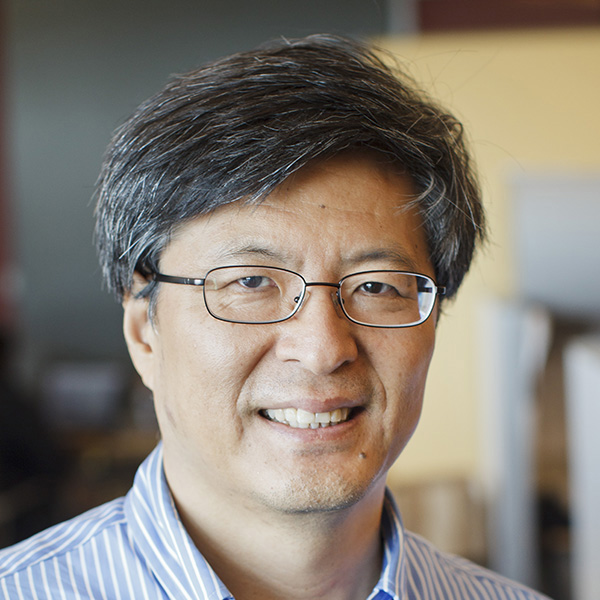Faculty Highlight: Meet Dr. KJ Cho

Dr. Kyeongjae (KJ) Cho is a professor in the Department of Materials Science and Engineering at The University of Texas at Dallas. Before joining UT Dallas, Cho worked as an assistant professor at Stanford University and a research scientist at MIT with a joint appointment at Harvard University after earning his PhD in Physics at MIT in 1994. Cho has published more than 400 journal and conference articles with an h-index of 79 and citation number of ~35,000 (Google scholar). He was elected Fellow of the American Physical Society in 2016, and Fellow of the Institute of Physics in 2004. He has received Frederich E. Terman Award from the Packard Foundation in 1997. He has been directing a research team in Multiscale Simulation Lab from 1997, and supervised 21 completed doctoral students (11 at Stanford and 10 at UT Dallas). He was recognized by the Jonsson School with its full professor research award in 2018.
Cho’s main area of research and teaching is multiscale modeling and simulation of nanoscale materials with the goal of realizing the vision of ‘Materials by Design.” The material design principle was applied to oxide catalyst systems leading to a commercial Mn-mullite catalyst development in the start-up company Nanostellar which was co-founded by Cho. His research team at MSL is currently investigating the atomistic and electronic structure-property relationships of nanomaterials, focusing primarily on modeling oxide material systems. Research topics include clean energy materials (battery, fuel cell and pollution control catalysts), quantum materials, and electronic device materials including 2D materials, oxides and III-V semiconductors. His current oxide materials research works are focused on battery materials and oxide semiconductor device materials.
In a cover article published in Advanced Materials in 2017,Cho has applied the material design principle to predict high capacity cathode materials with the experimental synthesis and performance demonstrations. Another oxide materials research project is illustrated by his most recent publication in Chemistry of Materials in 2021 which reports the first principles design of back-end-of-line p-type oxide semiconductor for the monolithic 3D integration of vertical CMOS devices. In this material design work funded by SRC/DARPA JUMP Center, Cho’s team has investigated 460 Sn-O-X compound oxide candidates with the design criterion of occupied s-orbital in Sn2+ ionic states leading to the discovery of most promising p-type oxide candidates: Ta2SnO6 and TiSnO3. His group is actively collaborating with experimental groups to demonstrated p-type oxide semiconductor performance to complete the design-synthesis-characterization loop of Materials by Design.




